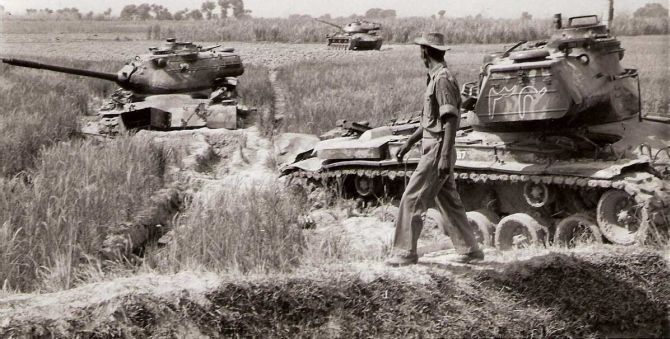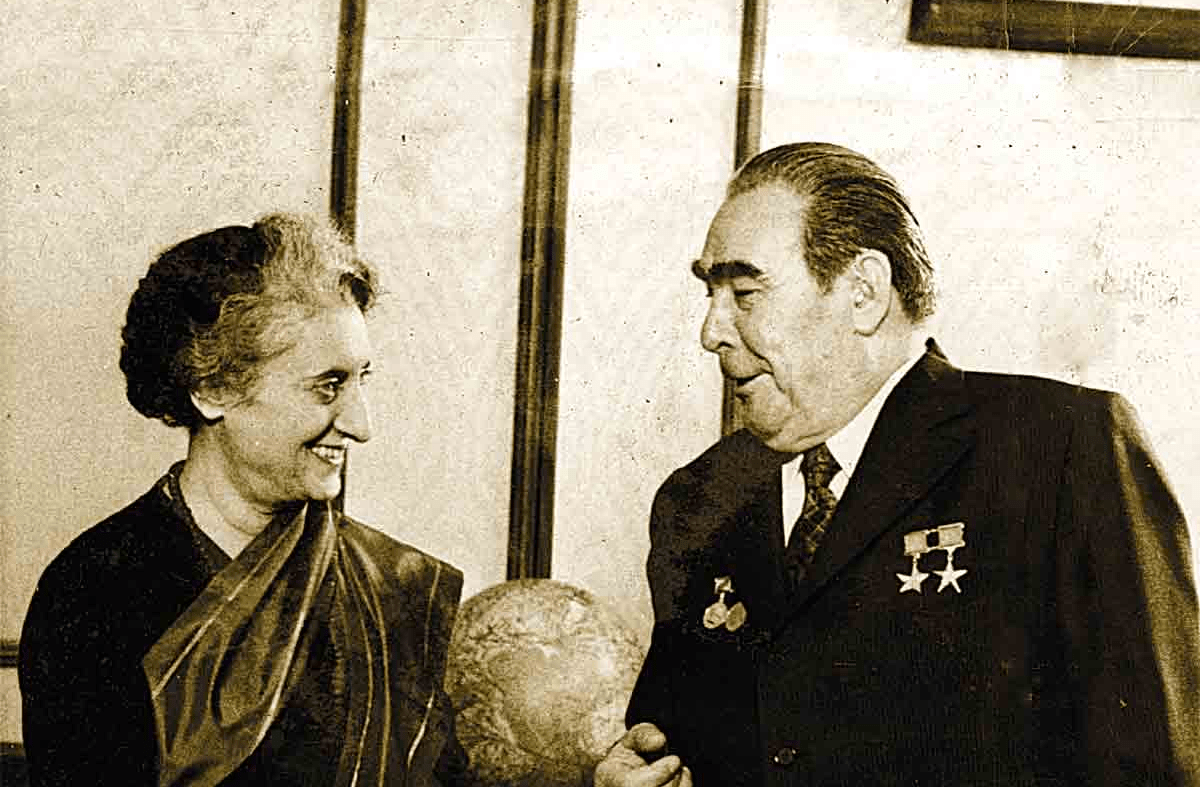United States-India-Russia Relations, Who Has Been The Biggest Ally Of India Through Time? 10 Instances When America Has Showed India The Door!
The bilateral relations between the United States and India have witnessed a complex trajectory characterized by more negative aspects than positive ones. During the two wars fought with Pakistan - 1965 and 1971, India received significant support from Russia; it stood by India's side and provided military assistance and diplomatic support during both wars.

India’s historical experiences with the United States have not been good, and the same can be seen from events throughout history, particularly during the 1965 Indo-Pakistan War (the United States imposed an arms embargo on both countries, which India perceived as biased towards Pakistan) and the 1971 Indo-Pakistan War where it supported Pakistan and Russia was the only ally India had.

If we look from India’s perspective, the United States-India relationship has witnessed negative aspects that have shaped the interactions right from historical factors, including the Cold War era, nuclear tests, technology transfer challenges, and trade imbalances, all have contributed to India’s concerns.
On the other hand, if we take a look at India’s relationship with Russia, it has been strongly characterized by historical cooperation, defence collaboration, nuclear energy and space cooperation, and efforts to deepen economic engagement.
So what has been the crux of Indo- American ties so far, from history to date?
Cold War Era
India’s non-aligned foreign policy often strained its relations with the United States during the Cold War era. The United States clearly favoured Pakistan as a strategic ally, while India’s alignment with the Soviet Union during this period further aggravated tensions between India and the United States.
Moreover, The United States support for Pakistan during the Indo-Pakistani conflicts, including the 1971 war and the nuclearization of Pakistan, fueled India’s concerns and hindered mutual trust.
Nuclear Tests and Sanctions
In 1998, India’s nuclear tests in Pokhran were met with international condemnation and sanctions from the United States. These sanctions affected India’s access to technology and hindered its economic progress.
India viewed the sanctions as discriminatory, as other nuclear powers were not subjected to similar measures, thus undermining the prospects of a genuine partnership.

Lack of Technology Transfer By the United States
India has, on multiple times, often faced challenges in accessing advanced technology from the United States due to its export controls and restrictive regulations.
The lack of cooperation from the United States side hindered India’s economic growth and technological development as India continued to face impediments concerning its efforts to modernize its defence forces and explore peaceful uses of outer space.
Therefore, denying critical dual-use technologies, such as high-end defence equipment and space technology, hindered India’s efforts to seek greater cooperation and technology transfer to foster innovation and strengthen its capabilities.
Thus, India viewed the restrictions on technology transfer as discriminatory, as other nuclear powers were not subjected to similar measures, undermining the prospects of a genuine partnership. The imposition of sanctions strained the relationship and created a sense of unease between the two nations.
Trade Imbalances and Market Access
India has voiced apprehensions over trade imbalances, with limited access to the U.S. market for its goods and services. Non-tariff barriers, intellectual property rights issues, and agricultural subsidies have affected India’s trade prospects. Imposing protectionist measures, such as withdrawing Generalized System of Preferences (GSP) benefits for Indian exports, has further strained economic relations.

Having explored what has been India’s relations with the United States, when we compare the same with Russia, it is clear that Russia has been a powerful ally for India.
Historical Cooperation
India and Russia share a longstanding history of cooperation, rooted in historical ties during the Cold War era, and the Indo-Soviet Treaty of Peace, Friendship, and Cooperation in 1971 further solidified the foundation of bilateral relations, marked by significant defence collaboration, military acquisitions, and technological transfers.
Indo – Russia Defense Cooperation
Russia has been a critical defence partner for India; it has supplied advanced military equipment, including fighter jets, submarines, and missiles, to India; thus, the partnership has significantly contributed to India’s defence modernization efforts.
Nuclear Energy and Space Cooperation
There is little doubt that Russia has played a vital role in India’s nuclear energy sector; since the early 1990s, Russia has been a major supplier of nuclear fuel to India and also assisting in constructing nuclear power plants. This cooperation has greatly contributed to India’s energy security.
Russia has also been a key partner in the space sector, with joint projects such as developing the GLONASS navigation system and successfully launching Indian satellites.

Economic Engagement
India and Russia have sought to enhance economic ties through initiatives such as the International North-South Transport Corridor and increased trade and investment cooperation. While economic relations with Russia have faced some challenges, such as limited market access and trade diversification, the countries have worked towards strengthening economic cooperation.
The Indo-Pakistan War and the Role of the United States and Russia
The Indo-Pakistan war has been a significant event in shaping the dynamics of United States-India relations. During the 1965 Indo-Pakistan war, the United States imposed an arms embargo on both countries, which India perceived as biased towards Pakistan, and this act on the United States’ part further strained India’s relations with the United States.
In the 1971 Indo-Pakistan war, India played a crucial role in the formation of Bangladesh; however, again, the United States, then under President Richard Nixon and his National Security Advisor Henry Kissinger, supported Pakistan during the conflict.
The United States backing of Pakistan, despite its atrocities in East Pakistan (now Bangladesh), created a deep sense of disappointment and betrayal in India. The United States support for Pakistan during this war strained its relations with India and fueled anti-American sentiments in the country.

On the other hand, India received significant support from the Soviet Union during the Indo-Pakistan conflicts. The Soviet Union stood by India’s side and provided military assistance and diplomatic support during the 1971 war. The Indo-Soviet Treaty of Peace, Friendship, and Cooperation further solidified the bond between India and the Soviet Union.
To this day, Russia continues to maintain strong defence ties with India, supplying advanced military equipment and engaging in joint military exercises, and Russia has been a reliable partner for India’s defence modernization efforts.
For India, Indo American Or Indo-Russia?
India’s ties with Russia serve as a counterbalance to its relations with the United States, providing an alternative avenue for strategic partnerships and technological collaborations.
While the United States remains an important partner for India in areas such as defence, technology, and trade, addressing the negative aspects and building greater trust and mutual understanding will be crucial to unlocking the relationship’s full potential.
The Last Bit, While navigating the complexities of international relations, India seeks a balanced approach that safeguards its national interests, fosters diversified partnerships, and promotes a multipolar world order.
As India grows as a global power, managing its relationships with both the United States and Russia could be a tough one; however, gaining a friend at the cost of losing a friend that has stood fast by India’s side is a dilemma that depends on the political agenda of the leaders of this country.




